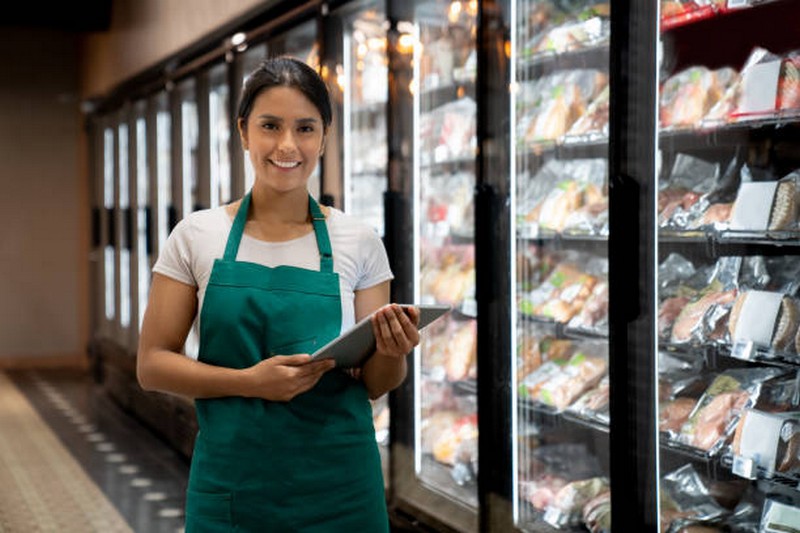Food waste is a major problem in a society facing food shortages and environmental sustainability. A surprising amount of food produced worldwide goes unconsumed, causing economic losses, resource waste, and environmental damage. Commercial refrigerators are unsung heroes in the battle against food waste. These appliances improve food preservation, supply networks, and sustainable food systems by increasing perishable commodities’ shelf life.
Gravity of Food Waste
Post-harvest losses, processing inefficiencies, retail, and consumer trash all contribute to food waste. This wastes water, land, and energy consumed in food production and releases greenhouse gases as food decomposes in landfills. Thus, reducing food waste helps feed the needy, conserves resources, and protects the environment.
Commercial Refrigeration: A Shield Against Food Waste
Commercial refrigerators and freezers offer a practical solution to prolong the shelf life of food products, slowing down the deterioration process and maintaining nutritional value and safety. Here’s how commercial refrigeration units are making strides in the battle against food waste:
- Enhanced Preservation: By maintaining optimal temperatures, commercial refrigerators inhibit the growth of spoilage organisms and enzymatic activity that contribute to food decay. This is particularly crucial for highly perishable items like dairy, meat, fruits, and vegetables, ensuring they remain fresh and safe for consumption over extended periods.
- Supply Chain Efficiency: Refrigerated transport and storage are integral to cold chain logistics, enabling the safe and efficient movement of perishable goods from farm to fork. By minimizing spoilage during transit and storage, commercial refrigeration systems ensure more food reaches the market in prime condition, reducing post-harvest losses.
- Waste Reduction in Retail and Hospitality: Supermarkets, restaurants, and catering services rely heavily on commercial refrigeration to keep inventory fresh and reduce spoilage. Advanced features like precise temperature controls, humidity regulation, and real-time monitoring further optimize food preservation, allowing businesses to manage their stock more effectively and minimize waste.
- Supporting Food Donation Efforts: Commercial refrigeration plays a vital role in food recovery and donation initiatives. By providing the means to safely store surplus food, refrigerators enable retailers and restaurants to donate perishable items to food banks and shelters, diverting food from landfills and channeling it to those in need.
Innovations Driving Impact
The fight against food waste is being bolstered by technological advancements in commercial refrigeration, including:
- Smart Refrigeration Systems: Equipped with IoT sensors, these systems offer real-time monitoring of temperature and humidity levels, sending alerts for any deviations that could lead to spoilage. This enables prompt action to maintain optimal conditions and prevent waste.
- Energy-Efficient Designs: Modern commercial refrigerators are designed to be more energy-efficient, reducing the carbon footprint associated with refrigeration. This aligns with broader sustainability goals, addressing the environmental impact of food waste and refrigeration energy use.
- Blast Chillers and Freezers: These rapid cooling technologies quickly reduce the temperature of cooked foods, locking in freshness and significantly extending shelf life. This is especially beneficial in the food service industry, where large quantities of food are prepared and stored.
Despite the obvious advantages, using industrial refrigeration as a technique to combat food waste is not without hurdles. High startup expenses, energy consumption, and the need for frequent maintenance are all important factors for enterprises. Furthermore, in areas with intermittent energy or restricted access to technology, many people continue to be unable to benefit from commercial refrigeration.
Addressing these issues needs a collaborative effort from governments, industry players, and the international community. Investments in renewable energy-powered refrigeration, subsidies or financial incentives for energy-efficient equipment, and education on proper food storage and handling techniques are critical to improving commercial refrigeration’s reach and influence on food waste reduction.
As the globe works for more sustainable food systems, commercial freezers play a critical role in decreasing food waste. By prolonging the shelf life of perishable items, these appliances help to save resources, reduce environmental impact, and ensure food security. Embracing innovation and overcoming access and pricing limitations will be critical to realizing the full potential of commercial refrigeration in the worldwide endeavor to reduce food wastage. By doing so, we may get closer to a future in which the abundance of food generated is completely used, feeding people rather than filling landfills.

